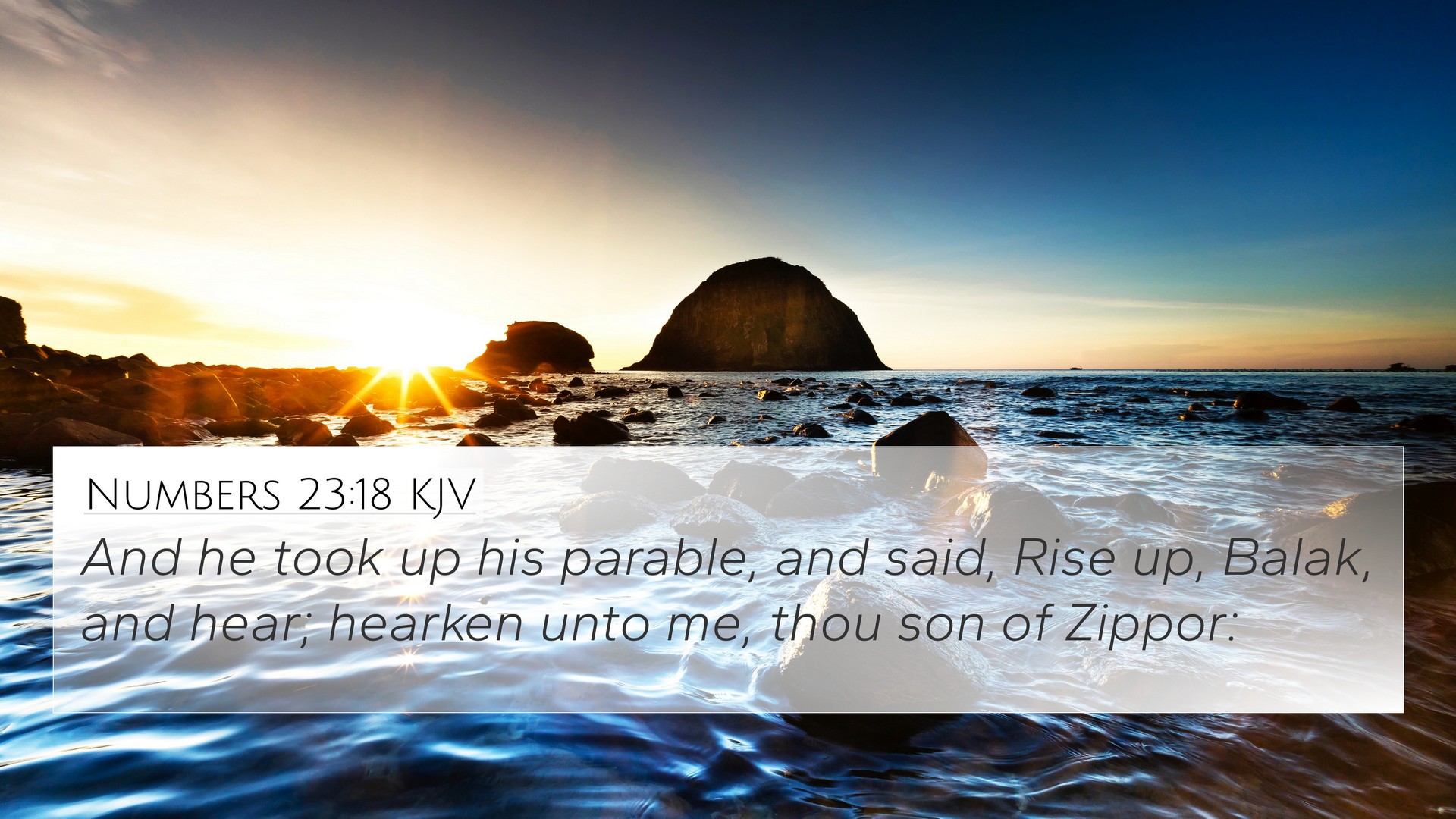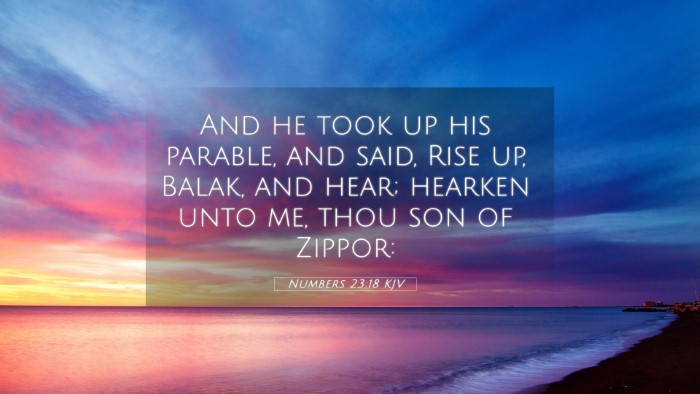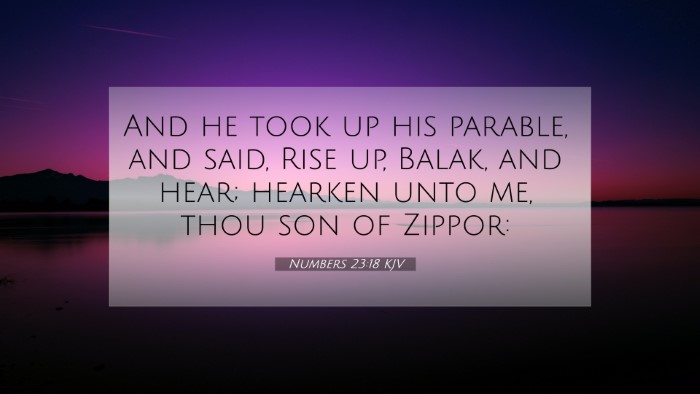Understanding Numbers 23:18
The verse Numbers 23:18 states, "And he took up his parable, and said, Rise up, Balak, and hear; hearken unto me, thou son of Zippor." This passage is significant in the context of Balaam's oracles and the broader narrative of God's sovereignty over nations.
Contextual Overview
In the Book of Numbers, we find the scenario where Balak, the king of Moab, invites Balaam, a renowned diviner, to curse the Israelites. Instead, God prompts Balaam to bless Israel. This sets the stage for Balaam's insightful proclamations that reflect God's purposes.
Meaning and Significance
-
Divine Authority:
The phrase "Rise up, Balak, and hear" indicates God's authority over Balak and the futility of opposing His plans. This lesson emphasizes that human leaders may try to oppose God's people, but they cannot ultimately succeed.
-
The Role of the Prophet:
Balaam serves as a conduit for God's message. His words highlight the consequences of disobedience versus the blessings of obedience, emphasizing the prophetic role in delivering divine wisdom.
-
The Nature of Blessings and Curses:
Balaam's instruction to Balak shows a critical turning point where God directly influences outcomes, reassuring Israel of His protection and favor—even amidst adversities.
Commentary Insights
Matthew Henry's Commentary
Matthew Henry focuses on the divine directive in Balaam's prophecy. He highlights how God ensures that Balaam speaks blessings, demonstrating the invincible power of God's will amidst human intentions.
Albert Barnes' Notes
Albert Barnes elaborates on the significance of Balaam's role. He notes that Balaam's task is not merely to receive messages but to recognize and relay God's truth, reinforcing the idea of God's supremacy over human affairs.
Adam Clarke's Commentary
Adam Clarke provides insight into the relationship between Balak and Balaam, detailing how Balak seeks to manipulate Balaam's divination but is met with divine intervention. Clarke emphasizes the lesson that true authority comes from God alone.
Bible Cross References
This verse correlates with several significant Biblical passages that reflect similar themes:
- Deuteronomy 23:5 - God's refusal to listen to curses against His people.
- Isaiah 54:17 - No weapon formed against Israel will prosper.
- Romans 8:31 - If God is for us, who can be against us?
- Numbers 22:12 - God's command against cursing Israel.
- Psalms 118:6 - The Lord is on my side; I will not fear.
- 1 Samuel 15:29 - The Glory of Israel will not lie or repent.
- Malachi 3:6 - The Lord does not change; thus, Israel is not consumed.
- Proverbs 21:30 - There is no wisdom nor understanding against the Lord.
- 2 Chronicles 20:15 - Battle belongs to the Lord, not to men.
Thematic Connections
This verse showcases the inter-Biblical dialogue that reveals God's overarching plan for His people. Through cross-referencing these texts, we can glean wisdom about divine justice, mercy, and the futility of opposing God's will.
Scriptural Cross-Referencing
Cross-referencing in scripture allows us to build a more comprehensive understanding of God's consistent message throughout the Bible. Scholars often employ tools for Bible cross-referencing, which can assist in drawing parallels between Old and New Testament themes.
Final Thoughts
Numbers 23:18 serves as a reminder of the power of God's word. The reflections from various commentaries illustrate the importance of discernment in understanding divine intentions, making this verse a cornerstone for both personal and communal faith.
Additional Study Tools
For those interested in deeper studies of Bible cross-references, utilizing a comprehensive Bible concordance or cross-reference guide can enhance understanding. Additionally, various Bible reference resources are available to support a thorough Bible cross-reference study.



